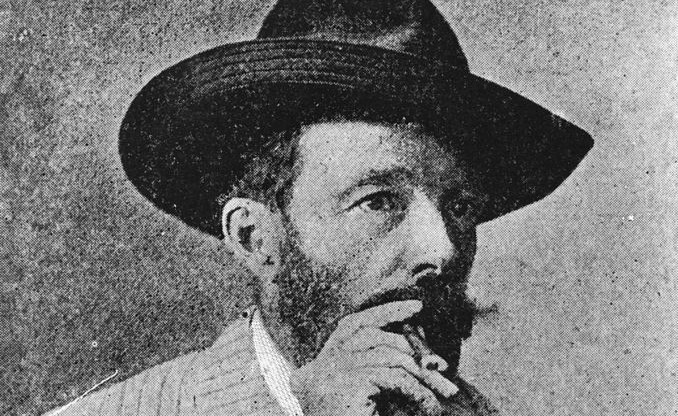Researchers find rare Victorian book that argued for acceptance of homosexuality

English writer John Addington Symonds (1840 – 1893), circa 1890. (Photo by Hulton Archive/Getty)
A largely forgotten 19th century book that argued for the acceptance of homosexuality in Victorian society has been rediscovered after a rare copy was found.
The book – titled A Problem in Greek Ethics – was written by John Addington Symonds in 1883 and delved into the acceptance and celebration of same-sex relationships in Ancient Greece. Unsurprisingly for the time, the book never made it into the mainstream. The prejudices of the time – and a harsh judicial regime – meant that most gay people lived their lives in secret.
Symonds, who himself was gay, worked to keep the book from ever hitting a public audience. He knew that the ideas he presented in the book were deeply subversive. He had 10 copies privately printed and distributed to close friends.
A new original copy of book that argued for the acceptance of homosexuality has recently been discovered.
Up until recently, it was thought that just five copies survived – until a researcher from John Hopkins University stumbled across a sixth.
Gabrielle Dean came across the rare book by accident through a Google search, The Baltimore Sun reports.
“I was trying to verify the authenticity of Symonds’ handwriting by comparing the example we had to samples of his handwriting in other books,” she said.
The essay has been enormously influential in the struggle for gay rights.
“I Googled ‘John Addington Symonds’ handwriting’ and one of the hits was a brand-new listing for ‘A Problem in Greek Ethics’ from a rare book dealer.”
The university subsequently bought the book and it is now being exhibited as part of an exhibition called Queer Connections: The Library of John Addington Symonds at Milton S Eisenhower Library in Baltimore.
The book is considered to be a vital piece in the emergence of the modern gay rights movement.
The book is considered to be an important document in the modern gay rights movement. While few copies were printed, it was routinely pirated throughout the 20th century.
“The essay has been enormously influential in the struggle for gay rights,” said Shane Butler of the university’s Classics Research Lab.
“There’s something sacred about a book like this, especially for queer students and gay faculty like myself. Just knowing that it’s there and being able to hold it and turn its pages is incredibly moving,” he added.
The groundbreaking book argued that Victorian Britain had largely based its identity on that of ancient Greece, yet refused to accept homosexuality.
While Symonds was gay, he went on to marry a woman and had four children with her. Despite this, his memoirs detail three same-sex relationships throughout his life. Most notably, he went on to hire a gondolier he met on a trip to Venice to work in his home in Switzerland after he developed intense feelings for the man.

